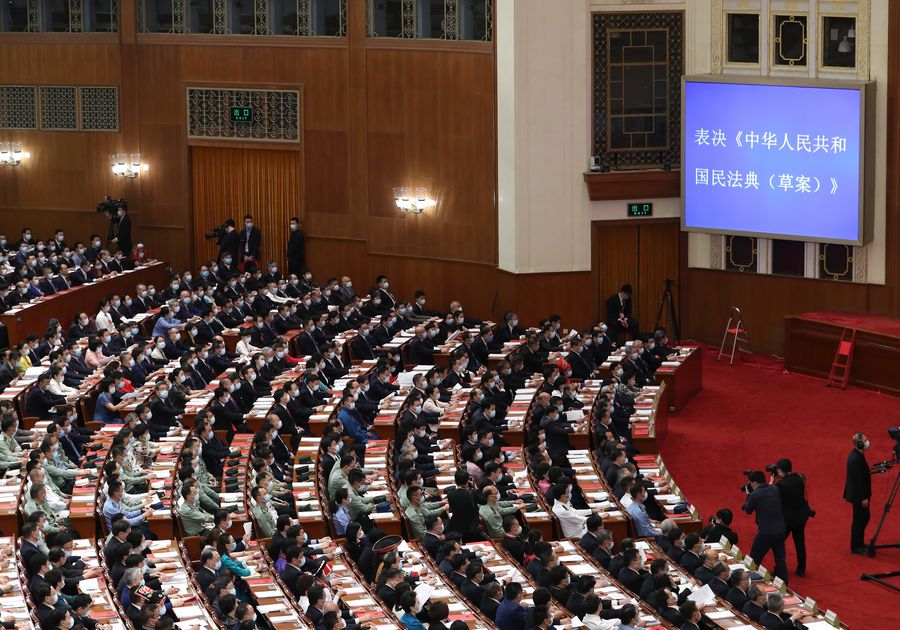What civil rights is a person entitled to?
Do unborn children have rights and interests?
What is the legality of AI face-swapping apps?
What regulations must pet owners obey?
Can virtual assets, such as Bitcoins, be inherited?
The answers to all these questions, and more, can be found in China's Civil Code.
BEIJING, May 28 -- Chinese lawmakers Thursday voted to adopt the country's long-expected Civil Code at the third session of the 13th National People's Congress (NPC), the top legislature.
The law will take effect on Jan. 1, 2021.

The closing meeting of third session of the 13th National People's Congress (NPC) is held at the Great Hall of the People in Beijing, capital of China, May 28, 2020. (Xinhua/Ding Haitao)
"The Civil Code is the first law to carry the title 'code' for the People's Republic of China. It lays down the fundamental principles and regulations regarding civil activities and relations. It reflects the will of the people and protect their rights and interests," said Wang Liming, executive vice president of Renmin University of China and a law professor.
"China's Civil Code will be the latest civil code born in the 21st century," said Peng Chengxin, professor and vice dean of Koguan School of Law of Shanghai Jiao Tong University.
China had made four attempts to compile a civil code since 1949 only to stop for various reasons.
Nonetheless, China enacted the General Principles of Civil Law in 1986, and laws covering areas such as property, tort liability, contract, marriage, and inheritance continued to be added or updated. These laid the groundwork for a civil code.













